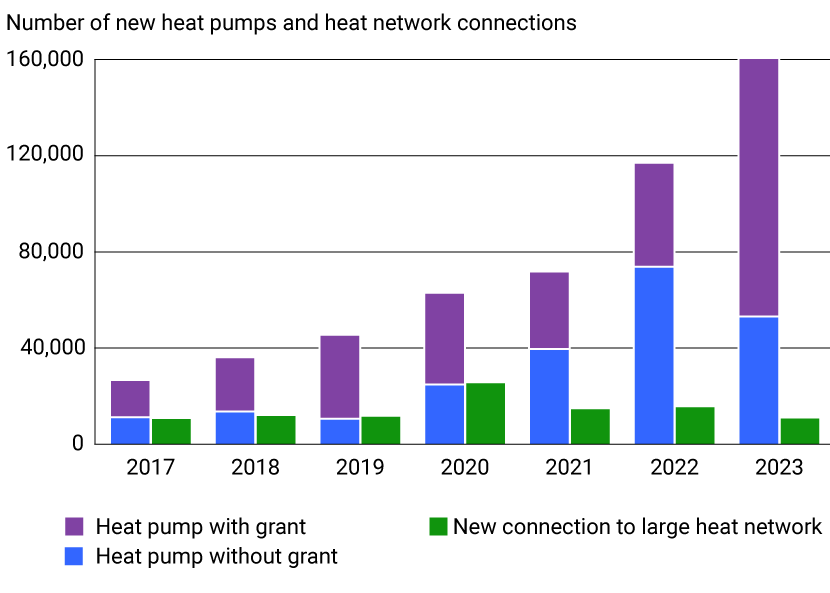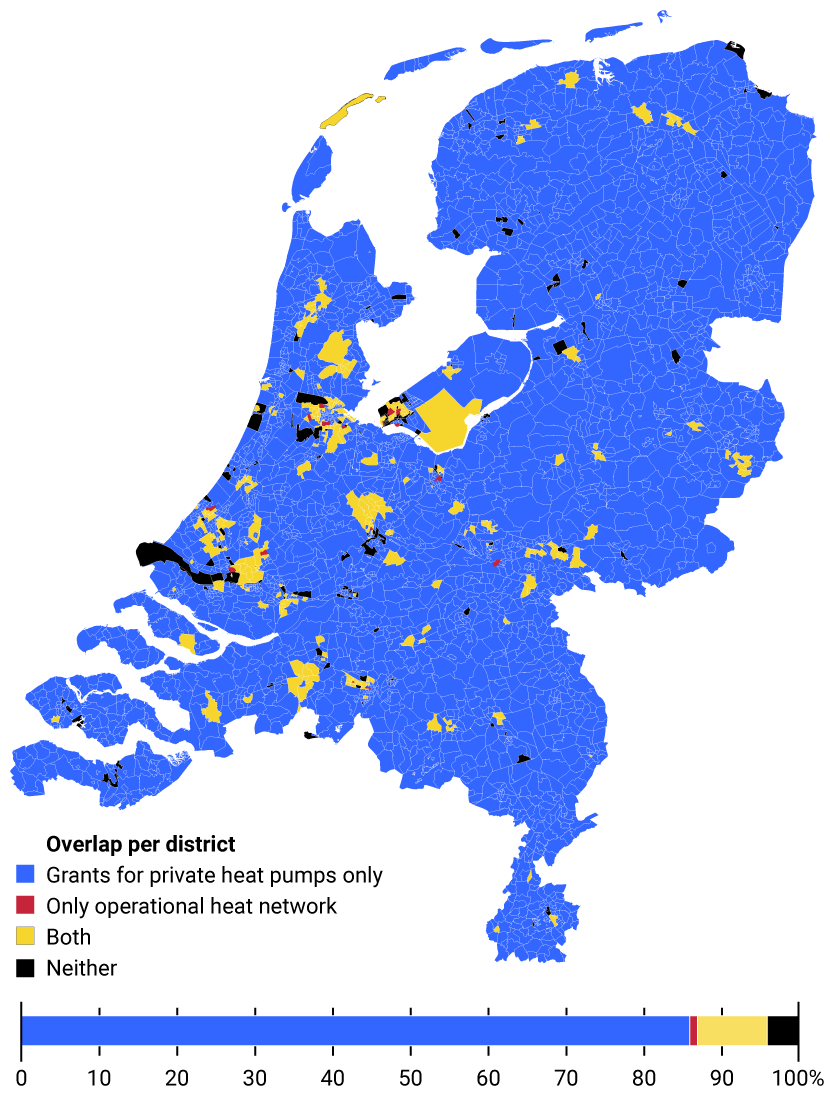A cold shower for heat networks
Time to adjust the heat transition
The number of people in the Netherlands installing a heat pump in order to cut their natural gas consumption has grown far faster in the past 7 years than the number of homes connecting to a district heating network. Government grants are available for both options so that the Netherlands will become gas-free by 2050. The popularity of heat pumps might be reducing the financial viability of new heat networks in districts with mixed building types.
A report published by the Netherlands Court of Audit on 4 February 2025, A cold shower for heat networks –Time to adjust the heat transition, reveals that 160,000 heat pumps were installed to make homes more energy efficient in 2023, versus 11,000 new connections to heat networks. Domestic heat pumps tend to last 15 years. The report concludes that the Minister for Climate Policy and Green Growth is running the risk that government grants will be used inefficiently where the 2 measures overlap. This is already occurring in parts of Deventer, Gorinchem, Groningen and Heeg. The minister does not know the extent of the nationwide overlap.
More heat pump installations than heat network connections every year since 2017

The Court found that more than 90% of grant-funded heat pumps had been installed in districts without a heat network. The overlap might be small but the Court recommends that the minister suspend grant payments for domestic heat pumps if they hold back the construction of heat networks.
Part 2 of the heat transition audit
We published the first part of this audit, on the grant scheme for heat pumps, on 15 May 2024. The audit report we published on 4 February 2025 makes use of a variety of data sources and analytical methods. We examined documents at ministries and institutions and interviewed stakeholders. We also investigated heat network projects, including the construction of heat networks in 3 municipalities: Deventer, Gorinchem and Groningen. We talked with the parties involved in the projects and analysed documents. We analysed data on every district in the Netherlands to identify the overlap between grant-funded heat pumps and operational heat networks, in so far as the data could reveal the overlap as this information is not yet available at national level.
Overlap between heat networks and heat pumps by district

Download the source data for this map
Municipal heat network plans faltering
There are currently nearly 500, mainly small, heat networks in the Netherlands, with 515,000 connections in total. Many, mainly urban, municipalities are planning to expand their heat networks or build new ones. But several projects have run into financial difficulties since the end of 2023 because they cannot be operated profitably. Government proposals for new networks and the subsequent parliamentary debate later this year will determine whether the impasse will be broken. According to the Netherlands Environmental Assessment Agency, a district heat network is the most appropriate and lowest-cost solution for a third of the built environment if the Netherlands is to become gas-free by 2050.
Regulation by the Consumer and Market Authority
Our audit also considered the role of the Consumer and Market Authority (ACM). Until 2024, this regulator did not have effective insight into whether the return network operators earned was more than reasonable, and it was unable to adequately protect the interests of people connected to heat networks.
The ministers’ response to the recommendations
One of the recommendations we make in the report is that alternative funding forms should be sought for the faltering heat transition. The Minister for Climate Policy and Green Growth and the Minister of Housing and Spatial Planning responded to the findings and recommendations in writing, as did the ACM. Their responses were published at the same time as the report.
The report was submitted to the House of Representatives, the Senate and the ministers concerned on 4 February 2025.
Do you have any feedback on this audit?
We welcome all feedback on our audits and investigations. What do you think about our report? If you have any questions or need further information, mail us at feedback@rekenkamer.nl. We read all emails carefully and treat them in confidence.